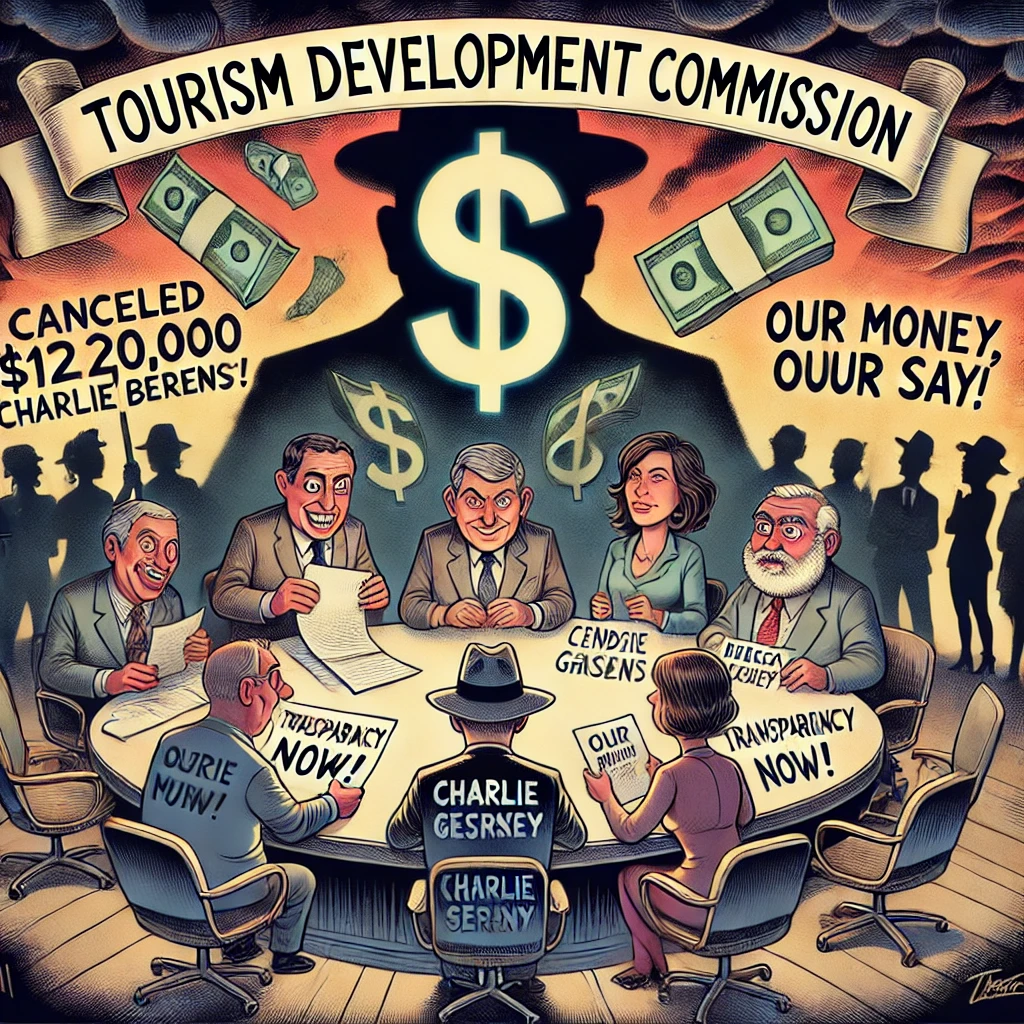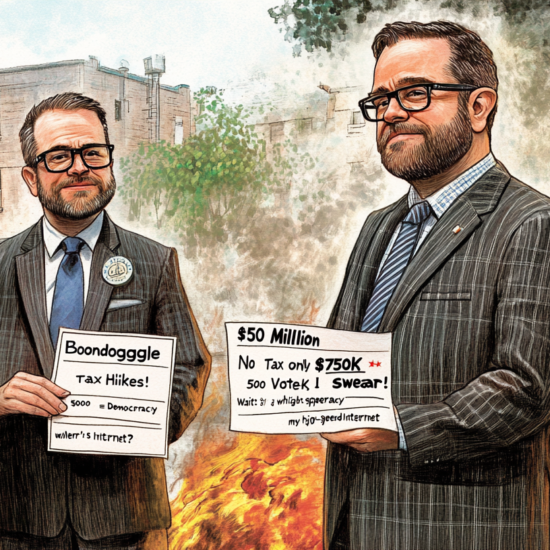Superior’s Tourism Commission: Secrecy, Scandal, and a Botched $120,000 Deal
The Tourism Development Commission (TDC) of Superior has found itself embroiled in controversy yet again, this time over a $120,000 contract with social media influencer and comedian Charlie Berens. The deal, touted as an innovative effort to boost tourism, quickly unraveled under intense public scrutiny, exposing flaws in leadership and governance that have plagued the TDC for years.
The Deal That Sparked Outrage
The contract, approved by the Superior City Council and championed by Lindsey Graskey, the TDC chair and council vice president, sought to leverage Berens’ popularity to promote the city. Known for his “Manitowoc Minute” videos and Wisconsin-themed humor, Berens commands a following of more than 9 million across platforms like TikTok, Instagram, and YouTube. The plan called for Berens to produce 10 pieces of content, including two short videos shared on his social media channels, to draw attention to Superior’s attractions.
Graskey described the deal as a “huge stepping stone” to showcase Superior’s natural beauty and “put the city on the map.” However, the plan was met with skepticism from city council members like Brent Fennessey and Garner Moffat, who questioned whether such an investment would deliver measurable returns. Moffat argued that Berens’ audience might not align with the city’s target demographics, casting doubt on the potential impact.
Despite concerns, the council approved the contract, with funds coming from room tax revenues. Graskey defended the expenditure, framing it as a bold experiment in tourism promotion. Yet, the deal quickly fell apart—not because of logistical hurdles, but because of a public backlash fueled by accusations of secrecy.
A Familiar Pattern of Opaque Leadership
The Berens debacle is the latest in a series of controversies highlighting the TDC’s troubling governance practices under Graskey’s leadership. Critics accused the commission of crafting the deal behind closed doors, leaving taxpayers—the stakeholders footing the bill—in the dark until it was too late.
Superior residents, already wary of the TDC’s track record, expressed outrage over the lack of transparency. This uproar mirrored previous frustrations with the commission, including Graskey’s past violations of Wisconsin’s open meetings law. The secrecy surrounding the Berens contract reinforced suspicions that the TDC prioritizes expedience over accountability.
“The community wasn’t rejecting Charlie Berens,” one resident noted. “They were rejecting the process—a closed-door decision that felt more like a dictate than a partnership.”
Damage Done Without Spending a Dime
While the $120,000 contract was ultimately scrapped before any money changed hands, the damage to the TDC’s reputation was already done. Critics argued that the debacle highlighted a broader failure of leadership, with Graskey at the helm.
The fallout has left Superior taxpayers questioning not just the wisdom of the Berens deal but the commission’s overall approach to governance. Graskey’s repeated reliance on secretive decision-making has created a culture of mistrust, with each new controversy further eroding public confidence.
Leadership Under Fire: Graskey’s Troubled Tenure
This isn’t the first time Lindsey Graskey has faced criticism for her leadership style. Her violation of Wisconsin’s open meetings law—a cornerstone of government transparency—underscored a troubling disregard for accountability. These incidents are part of a larger pattern in which public input is sidelined, and transparency becomes an afterthought.
Graskey’s defenders argue that she is bold and willing to take risks, but critics see her leadership as emblematic of a deeper issue within the TDC. The commission’s repeated missteps suggest systemic problems that go beyond any single contract or controversy.
Calls for Change: Transparency as the Only Path Forward
The Berens fiasco has become a tipping point for many Superior residents, who are demanding a radical shift in how the TDC operates. Moving forward, the commission must embrace transparency as a guiding principle, ensuring that decisions involving public funds are made with public input.
Critics insist that open meetings must live up to their name, and that taxpayers must be treated as partners, not obstacles. Graskey’s leadership will need to reckon with these demands if the TDC hopes to regain trust.
Conclusion: A Costly Lesson in Mismanagement
Superior taxpayers may have avoided a financial disaster, but the damage to public trust remains profound. Under Lindsey Graskey’s leadership, the TDC has repeatedly chosen secrecy over service, leaving the community disillusioned and distrustful.
This episode should serve as a wake-up call. The people of Superior have made it clear: transparency is not optional. For the TDC to rebuild its credibility, it will need to abandon the backroom politics that have defined its recent history. Without meaningful action, the commission risks further alienating the very community it exists to serve.
Source : WPR



